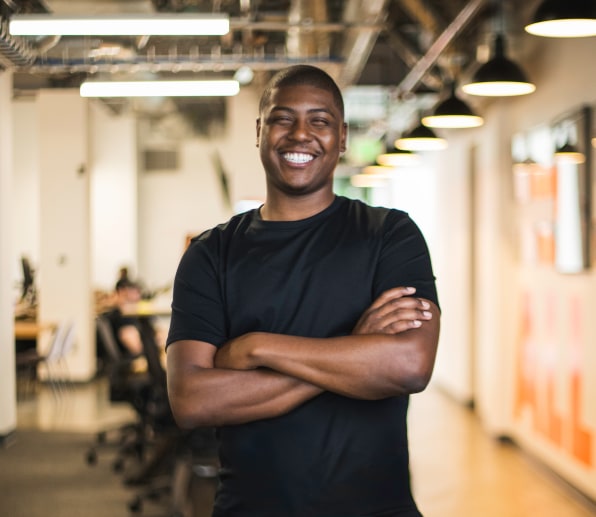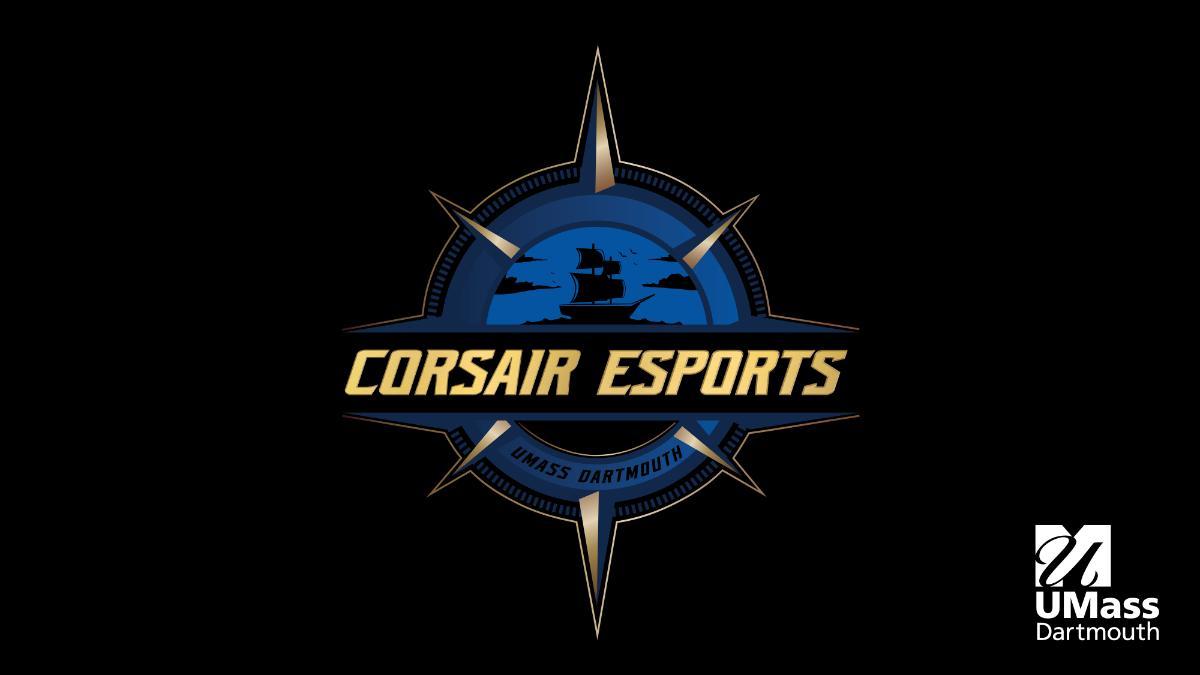By Kevin J. Ryan long Examine
Amazon sent a jolt by means of the tech planet in 2014 by asserting it was shopping for Twitch, the 3-year-old streaming platform that was turning out to be common with avid gamers, for approximately $1 billion. At that time, Silicon Valley-based mostly New Organization Associates (NEA) experienced grown to be a single of the greatest venture funds companies in the earth on the again of investments in corporations like Uber, BuzzFeed, Groupon, Coursera, 23andMe, and Cloudflare. Wanting for the firm’s next large point, NEA companions Rick Yang and Jon Sakoda set their sights on esports. As recounted in this excerpt from Kevin Ryan’s new e-book, Forward of the Video game: The Unlikely Increase of a Detroit Kid Who Endlessly Transformed the Esports Business, the two traders would uncover an reply in the unlikeliest of entrepreneurs.
Growing up as a star swimmer in the Dallas suburbs, Rick Yang had a little bit of a magic formula lifestyle. Unbeknownst to most of his classmates—and his teammates—he would appear home immediately after exercise, breeze via his research, boot up his personal computer, and enjoy the match Planet of Warcraft. This activity was not, by any means, thought of “cool.” Known for its elves, dragons, and other fantasy imagery, the game at the time experienced an complete South Park episode devoted to mocking the nerdy lifestyle all-around it. Yang developed a 2nd social circle in addition to his swim circle, a single that played game titles with each other in each individual other’s bedrooms or basements. On weekends they’d get together and perform WoW, as it was known amid avid gamers, or Ultima On the web, another game characterised by healthier doses of magic and dorkiness.
Fellow NEA husband or wife Jon Sakoda wasn’t significantly of a gamer himself, but he could identify a phenomenon-in-the-earning when he noticed 1. Taking part in video clip video games was no longer about turning on a Nintendo or PlayStation and competing in opposition to the laptop. More and much more game titles ended up currently being designed with crew play in head, giving the alternative to perform on the net in competitive, team-based matches identified as esports. In their early days as NEA partners, Sakoda and Yang noticed a cultural changeover playing out throughout The united states. For gamers, the dual lifetime was turning out to be a matter of the past. High university basketball and soccer stars ended up finding up controllers and participating in movie game titles after faculty, and they weren’t hiding it.
“For the young demographics,” stated Yang, “video games had been turning out to be a portion of mainstream lifestyle.”
Gaming, in other terms, was not just for the nerds any more. For a few of venture capitalists, this meant there was a whole lot of money to be produced.
“Twitch’s exit led people today to consider that there have been some a lot more massive esports firms to come,” said Sakoda. “We assumed it was even even larger than what most people today were being expressing. We had a thesis that esports was going to be explosive.”
This thesis, of class, was accurate. Amongst 2014 and 2017, world esports revenues would improve by a lot more than 250%, achieving $655 million. Although the industry expanded, Yang and Sakoda searched for the business that could be the next unicorn. They listened to pitches from a handful of game publishers. The upshot of betting on the correct publisher could be huge: Riot Games, for example, grew its match League of Legends from zero to 100 million month-to-month buyers in six decades and Epic Online games, the firm guiding Fortnite, obtained 200 million registered end users in 16 months and would go on to be valued at $17 billion.
But for each individual League of Legends or Fortnite there had been many, many flops. Predicting what titles would take off was seemingly not possible. Yang and Sakoda required to discover a organization that was a lot less susceptible to the capricious character of client preferences. A business that could instead capitalize on the industry’s macro trends. A firm that could tap into the marketplace in a new and profound way.
In the spring of 2018, they located it.
In the weeks major up to April 6, 2018, Peter Pham, cofounder of the Santa Monica startup incubator Science, sent dozens of emails to buyers across Silicon Valley about a new entrepreneur he was specifically enthusiastic about. Science experienced presented the youthful founder a few hundred thousand bucks in seed cash and established up a desk for him in its office. Now it was time for him to try out to increase a entire-on undertaking spherical.
A couple minutes in advance of 2 p.m., Pham confidently strolled into NEA’s Menlo Park headquarters. Going for walks alongside him was the entrepreneur in question. Delane Parnell was 25 several years previous. He had no school diploma. He wore not a match or a vest in excess of a button-down, but a hoodie. His startup experienced just two full-time staff members. But Pham experienced vouched for him, likely so significantly as to look at his entrepreneurial chops to people of Michael Dubin, the Dollar Shave Club founder Science had incubated various years previously before it inevitably sold to Unilever for $1 billion. As these kinds of, many firms, NEA integrated, experienced agreed to meet with him.

Yang and Sakoda escorted Pham and Parnell to a large-windowed conference area. The two pairs seated by themselves on opposite sides of the table. Sakoda imagined about his a few prerequisites for investing in a startup. The conditions weren’t groundbreaking, but they laid the basis for a startup to have at least a decent prospect of achievement. They have been:
- A massive possible sector
- A competitive edge within just mentioned market place
- A fantastic founder
There was no denying that Parnell’s startup, PlayVS, existed in a enormous industry: The corporation was developing computer software for esports. At that time, a smaller quantity of high colleges across the country had developed esports clubs. College students could exhibit up right after university and play in opposition to just one yet another or, at times, in opposition to an additional school. Most of the clubs have been grassroots in nature. What Parnell was developing at PlayVS was a system that could give superior college esports some substantially-wanted infrastructure. The firm would aid the schools that did not nevertheless have clubs—the huge greater part of America’s 24,000 high schools—form and start them. Then it would arrange the teams into leagues, routine matches, host all those matches on the web, compile the appropriate figures and information, manage and stream the postseason, and, in the end, assist crown point out champions.
This was exactly where Sakoda’s 2nd requirement arrived into perform. Unbeknownst to the general public at the time, PlayVS had a short while ago signed a offer with the Countrywide Federation of State Significant Faculty Associations, or NFHS. The NFHS is to high school sports what the NCAA is to college or university sporting activities: a human body that writes the regulations for athletics, establishes college student-athlete eligibility, and provides advice on issues like coaching and athlete safety. For decades, the NFHS had been contemplating building esports an formally sanctioned large university sport. Its arrangement with PlayVS meant that when that occurred at some time in the close to future, the startup’s program was heading to be the system on which all higher school esports would work. The deal contained something critical for PlayVS: an exclusivity clause. This meant that no other esports enterprise could minimize a identical offer with the NFHS for the up coming 5 yrs. PlayVS, regardless of being a a few-particular person startup no 1 had read of, had constructed a tall and durable wall of defense against competitors—exactly the variety of edge Sakoda looked for.
The way the firm had managed to do that experienced a good deal to do with Sakoda’s third element: the entrepreneur. Sakoda knew as substantially from his discussions with Pham. Now he was acquiring to see it firsthand. Almost as before long as the child started out speaking, Sakoda observed he could not glance away from his smile. It improved Parnell’s whole face, puffing up his cheeks and narrowing his eyes into squints. Sakoda appreciated this smile. A number of minutes into the conference, Parnell was off and running, standing around the watch on the wall and going for walks the traders through the numerous characteristics of the software.
Not a single match publisher experienced agreed to let PlayVS license its video games. Quite a few were being notoriously stingy about these kinds of promotions.
“This is exactly where a coach can log in to take care of their roster.” A simply click of a slide. “This is exactly where they can see their team’s stats and impending matchups.” A simply click of a slide. Parnell talked about the actuality that substantial faculty esports would be a no-slash activity, making it possible for youngsters of all ability stages to participate and thereby producing a broader user foundation. He spoke about teams getting coed, with competitions having position in particular person under the guidance of an adult—as opposed to on the web and anonymous—which he theorized would neutralize substantially of the toxicity that plagued the globe of gaming. He talked about the platform’s opportunity, as an after-school software, to hold young children off the streets.
Yang and Sakoda listened intently. “You just never listen to individuals kinds of factors in a pitch about a gaming organization,” Yang stated later.
Pham, normally a bundle of power in these meetings, understood to choose a again seat that working day. He grabbed some treats from the unfold and introduced them back again to his seat at the table, munching quietly though the VCs questioned concerns.
“How do we know PlayVS will really get colleges and students to indication up?”
“We will,” Parnell reassured them. “We’re speaking about movie games. And what schools would not want to give their pupils the possibility to be concerned in a little something following college?”
An even greater unidentified: Not a single video game publisher had agreed to allow PlayVS license its online games. Numerous have been notoriously stingy about these types of specials.
“What’s the chance that PlayVS can indication promotions with publishers?”
Parnell grinned. “Having a agreement with the NFHS suggests we have access to 16 million high college learners,” he stated. “Why wouldn’t the publishers do it?”
Regularly, the traders asked him inquiries, and continuously, he had answers—sometimes in the type of a rhetorical problem correct back at them.
“He had these a certainty, this sort of a positivity,” Sakoda recalled. “He would just smile and say, ‘Yeah, we’ll get the significant publishers to do these specials.’ No matter what he was chatting about, even if it appeared dangerous or seemed like it would be tricky, you just believed he was going to be equipped to do it.”
Here was the NEA place of work nestled in the rolling greenery of Menlo Park, across the street from a region club in the heart of Silicon Valley. You could walk out the doorway and achieve the offices of some of the other most renowned VC companies in the world—Kleiner Perkins, Sequoia, Andreessen Horowitz—in less than a moment the headquarters of Google, Fb, or Apple in much less than 20. And listed here was Delane Parnell, the 25-calendar year-aged Black entrepreneur from the impoverished community just off Seven Mile Road in Detroit, standing in the center of it all, pitching his coronary heart out for two seasoned traders.
“It was magical to observe,” Sakoda recalled. “We caught the bug.”
Which was why, 20 minutes into the meeting, Sakoda turned to Yang in his chair. “We have to make investments in this enterprise,” he blurted out.
That was just what Pham wanted to hear. He stepped back again into the conversation, and he and the two buyers started off discussing potential conditions. PlayVS wanted a agency to lead this Collection A funding round—the organization that would indicator the premier look at, support established the round’s terms, vet the other opportunity investors, and acquire a seat on the startup’s board of administrators.
Yang and Sakoda understood one particular detail with certainty: If PlayVS at any time failed, it would not be for the reason that of its founder.
This time, Sakoda turned to Yang in advance of turning back to Pham: “NEA is interested in currently being that agency.”
When the conversation ended, the 4 guys shook palms, and Parnell and Pham were being on their way to their next pitch assembly, the 11th of 13 they’d show up at in the span of 30 several hours. Even if none of the other corporations were being interested, they experienced acquired a verbal determination from a lead investor. There was however a very long way to go, but this was a significant to start with step in acquiring the tens of millions of dollars PlayVS would need to have to seek the services of a employees and get this point off the floor.
For Yang and Sakoda, Parnell represented a likely answer to their 4-yr look for for the suitable esports entrepreneur. All the things they’d listened to that working day experienced certain them so. It wasn’t just about the positivity and the assurance and the ability to promote an plan, while individuals factors undoubtedly aided. There was far more to Parnell. A lot, considerably a lot more. They had uncovered so in that pitch conference, in advance of Parnell spoke about PlayVS’s software or the NFHS or prospective publisher deals. They figured out it when Parnell took them back. Back again to the condominium in the crack-infested assignments. Back to the gangs. Back again to his mom, the shootings, the drop in his yard.
“Context,” Parnell would say afterwards, “is tremendous crucial.”
Yang would concur. “If it was not for Delane chatting about the mission-driven character of this company and his have history,” he mentioned, “and why that all led him to be the fantastic founder for this kind of corporation, the rest of the pitch would not have been as effective as it was. That’s an critical component of knowledge who Delane is and how it drives him.”
The fact of investing in early-stage firms is that it’s impossible to know how a item will land when it hits the market place. But watching Parnell in entrance of the home that day, Yang and Sakoda knew one particular detail with certainty: If PlayVS at any time unsuccessful, it wouldn’t be simply because of its founder. Parnell wasn’t heading to give something a lot less than almost everything he had to give. He had by now arrive much too significantly.
Tailored from the e book Forward of the Video game: The Not likely Increase of a Detroit Child Who Forever Changed the Esports Sector, by Kevin J. Ryan, out there now and printed by HarperCollins Management, an imprint of HarperCollins. Copyright 2022 by Kevin J. Ryan.







More Stories
2023: UMassD unveils new Esports arena
Esports news | Jiri Toman scores to start with ESL R1 round gain
UW-Eau Claire’s Esports Club a in good shape for the two relaxed and competitive avid gamers